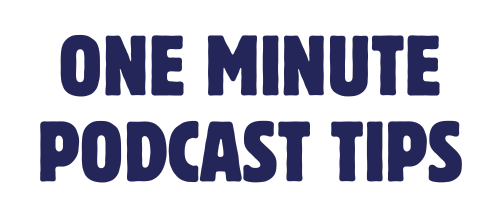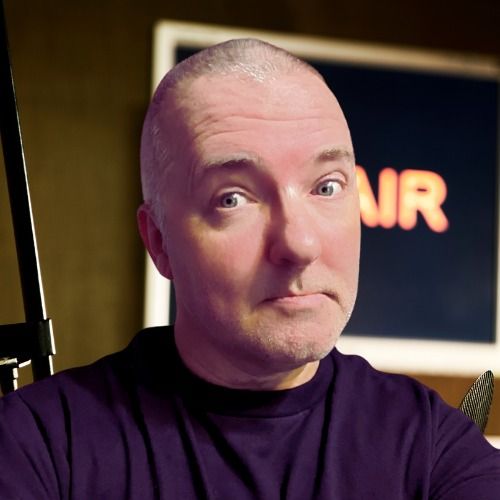Episode 22
How To Make Your Podcast Audio Sound Great
When it comes to your podcast, having the best audio as possible is key for a better listener experience. Ideally, this would mean great mic technique and a treated space.
But what happens if your environment isn't ideal? That's where audio optimization and repair tools can help, as I talk about in this episode.
Mentioned in this week's episode:
Products I use for One Minute Podcast Tips
Note: these contain affiliate links, so I may get a small percentage of any product you buy/use when using my link.
My equipment:
- Shure SM7B dynamic mic
- Rodecaster Pro II audio production studio
- Sony MDR-7506 Studio Monitor Headphones
- Elgato Wave Mic Arm Low Profile
Recommended resources:
Mentioned in this episode:
Recommend the show
Help your friends and other podcasters discover One Minute Podcast Tips, by sharing/recommending this episode and/or the show with them!
Join the One Minute Podders membership for exclusive perks!
You're a serious indie podcaster looking to go beyond the one minute tips offered in each episode. You want to connect with like-minded podcasters as well as ask your own specific questions. Perfect - the One Minute Podders membership is just for you, with invite-only monthly live streams, early access to episodes 48 hours before anyone else, and a link to your podcast in the show notes.
Support One Minute Podcast Tips
This podcast uses the following third-party services for analysis:
OP3 - https://op3.dev/privacy
Transcript
You're listening to One Minute Podcast Tips. I'm your host, Danny Brown, and each episode helps you be a better podcaster. Find all the latest episodes at OneMinutePodcastTips.com or free wherever you get podcasts. And now this week's episode.
Danny:When it comes to the quality of your podcast audio, obviously you want it sounding as good as you can. Now, ideally, this would come from good mic technique and a good recording space. These would be the ideal combinations, and I talk about that in episode 13. But if you don't have the ideal space, there are some options that can help.
Danny:If your editing tool supports VST plugins, for example, you can use something like Isotope RX, which offers mouth de-click, repair assistant de-hum, de-noise, and a host of other audio repair tools. For a free option, Auphonic.com offers leveller, noise reduction, auto EQ, and loudness settings. New to the space is Adobe Podcast that lets you upload an audio file and repairs it for you. Now, this really only works with bad audio files. If the original was good, it will actually make it sound worse. But if the audio file that you have has lots of echo, wind, noise, et cetera, it does a really good job of making it sound like the audio was recorded in a recording studio. It's a bit like Descript Studio Sound, but a free option.
Danny:These are just some of the tools available if you need to make your audio sound better, and I'll leave links to each in the show notes. Until next time, happy podcasting.
Danny:If you're enjoying One Minute Podcast Tips, leave a review at OneMinutePodcastTips.com/review and help others find the show too. Until the next time, happy podcasting.






